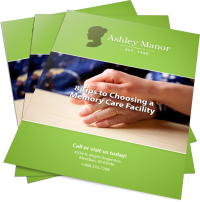More than 65 million Americans are devoting 20 hours a week or more to caring for elderly family members. Being a caretaker while also trying to manage your own career, family and personal life can be challenging, especially if you’re dealing with an elderly loved one who has Alzheimer’s or dementia.
It isn’t always the best option for your loved one, either. How will you provide proper care if you’re tired and irritable all the time? Is it possible to do your best at work when you’re stressed about being a caretaker?
Gathering the Team: Discussing Elderly Care with Your Siblings
If you’re leaning toward finding an assisted-living facility for your elderly loved ones, then it’s time to gather the family for an important meeting. People tend to have mixed feelings about assisted-living facilities, which means you’ll need to approach the subject with gentle compassion.
It can be difficult to accept that elderly parents need full-time care. It generally means they are nearing the end of their lives, which is sad to think about. It can be just as hard for the elderly to accept that they need help, especially if they’re struggling with memory loss and confusion. At times, they may feel insulted at the idea that they’d need a full-time caretaker. If your family members are resistant to the idea, there are a few points you might want to bring up.
1. It’s Cheaper
Some people worry about the cost of an assisted-living facility, but most people spend more money attempting to care for their elderly loved one on their own. Statistics show that the value of care provided by family members amounts to more than double than what they’d spend on a facility.
2. It’s Safer
When someone suffers from conditions like dementia or Alzheimer’s, they might require supervision during the late-night hours as well as during the daytime. No one can be available 24 hours a day to watch their elderly loved ones. For advanced cases that involve memory loss, confusion, the tendency to wander or other dangerous behaviors, full-time care at a facility designed for memory loss could be the most compassionate option.
3. It’s the Best Way to Share Happy Times
When you don’t have to be a full-time caregiver, you won’t have as many day-to-day frustrations weighing you down. Your time with your elderly loved ones can be focused on enjoyable activities, like playing games, taking walks, watching films or simply enjoying conversations. The final years together will be filled with happy memories, and you’ll sleep better at night knowing that your loved one is being cared for by people who know what they’re doing.
If you’re ready to discuss moving your elderly loved one to a compassionate and professional assisted-living facility, contact Ashley Manor today.



Leave a Reply